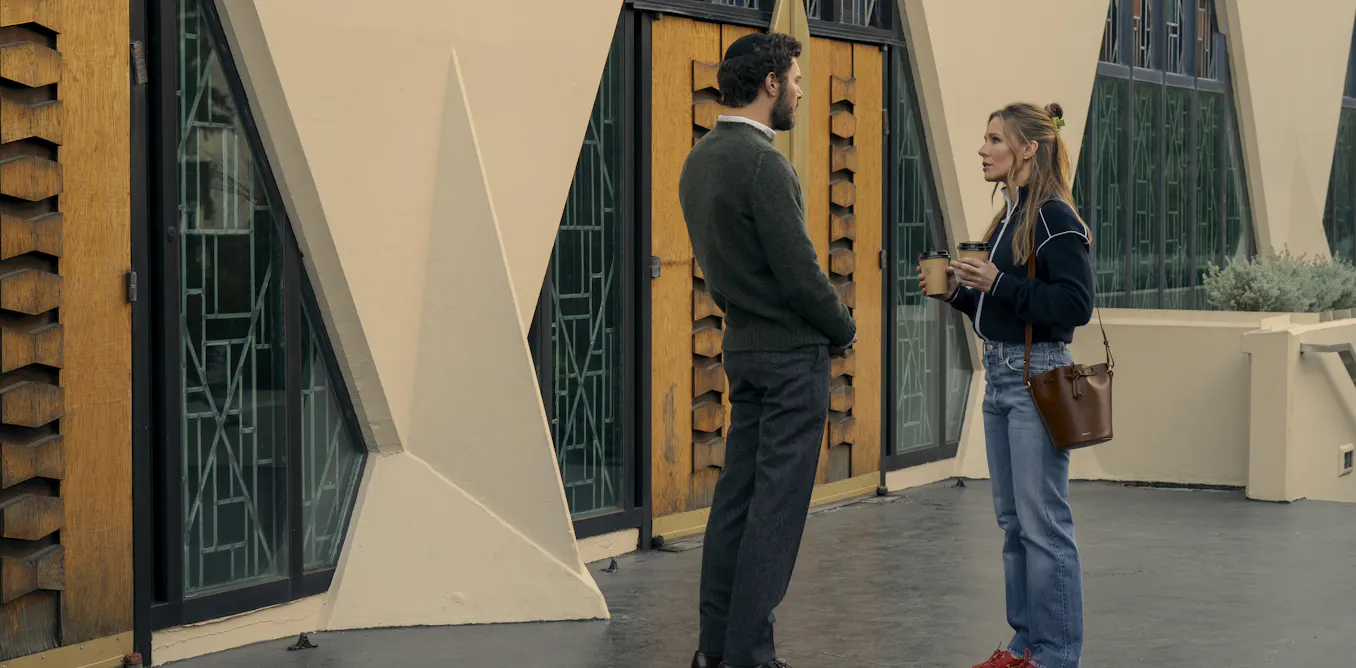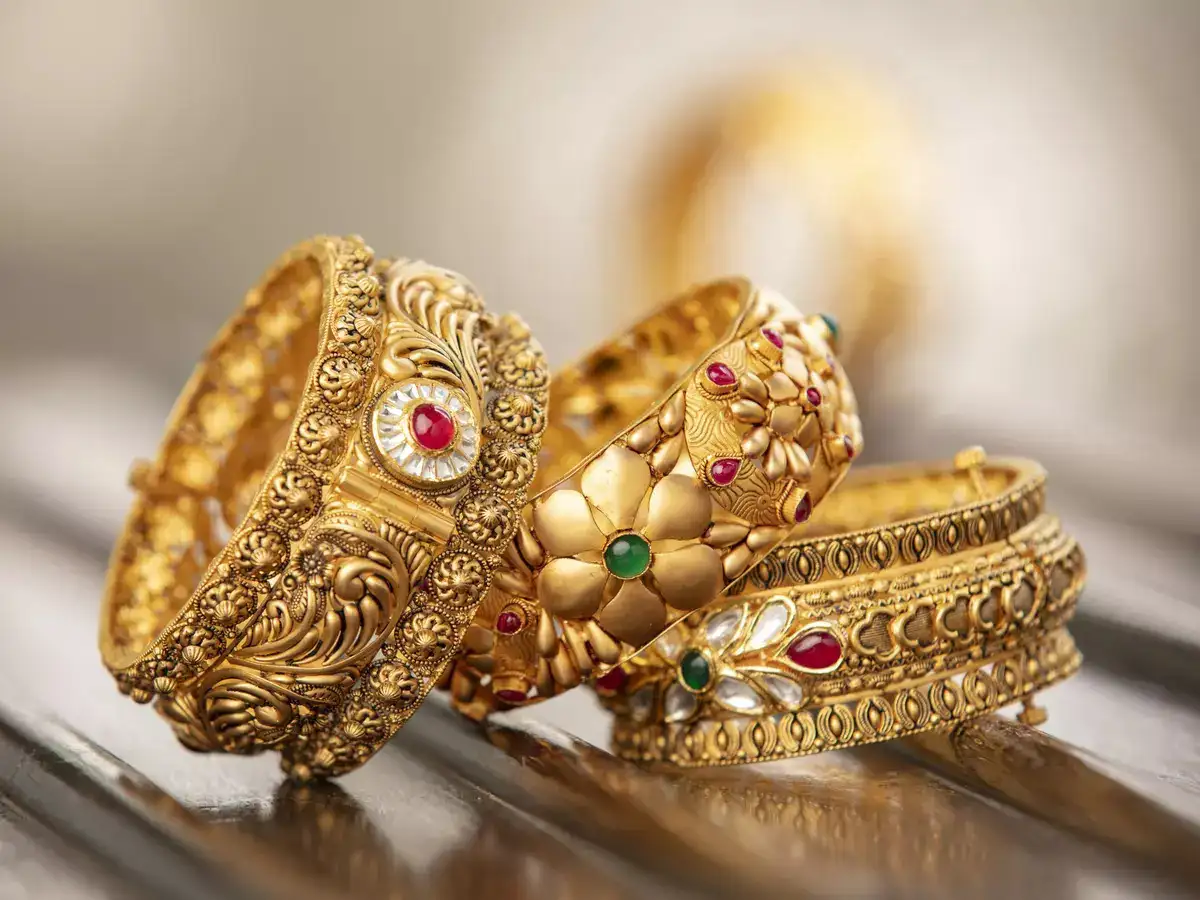Copyright theconversation

Nobody Wants This is a romantic comedy following an agnostic white American woman, Joanne (Kristen Bell), and “hot rabbi” Noah Roklov (Adam Brody). Falling for Noah is easy but maintaining a relationship and forging a future with a leader of a religious community is much harder. Joanne must consider how far she is willing to go for love – will she convert? Reviewing the first series, journalist Esther Zuckerman described how, despite having been hooked by the concept, she was frustrated by the representation of Jewish women in the show. Zuckerman found them to be a “horde of judgmental … needy, overbearing and nasty” characters. The behaviour displayed towards Joanne by the women in Noah’s family – from whispered threats to open confrontation – makes it difficult to disagree with Zuckerman’s assessment. No matter how beautifully wrapped up the stereotypes are, the traces of what could be perceived as both antisemitism and misogyny remained. Now back for a second series, the show has the opportunity for a more nuanced engagement with Jewish characters and ideas. Read more: Mary: as a Biblical scholar, I can't recommend this right-wing funded Netflix biopic When the show’s creator, Erin Foster – whose romance with now-husband Simon Tikhman inspired the story – was asked about its depiction of Jewish women, she admitted: “It wasn’t really something I was thinking about too much.” It’s not surprising, then, that Nobody Wants This strayed into stereotypes. A case in point is the character of Bina, Noah’s mother. Bina is a small but powerful and devout woman, limited in the first season to all the worst stereotypes of the Jewish mother. She is overbearing, hostile and determined to reunite Noah with his Jewish ex-girlfriend. The long-suffering looks that are exchanged between Noah and his father during one of Bina’s reproachful rants reminds us of her role within this world. She is not just seen as an antagonist but a thoroughly unlikable and, as these glances communicate, ridiculous woman. This was cemented in the first season in a scene where she chastises Joanne for bringing a highly non-kosher plate of pork to her home, only to be caught retrieving it from the bin in the ultimate act of hypocrisy. The other Jewish mother of the series, Esther, is Noah’s sister-in-law. From the moment of her introduction in season one, she is presented as domineering and hostile. She pulls up outside the bar where her husband, Sasha, has chaperoned Noah, demanding that her husband immediately comes home. She doesn’t embellish her feelings towards Joanne and her sister Morgan, quickly naming them “whores one and two”. She also deliberately ostracises Joanne at every opportunity. Much like Bina, Esther begins the second season firmly against the relationship between Joanne and Noah. Unlike Bina, though, Esther is given a greater presence and more space to grow beyond the stereotype of overbearing wife and mother, becoming a more complex and nuanced character. Over the course of the season her attitude towards Joanne clearly softens. Esther shows kindness to Joanne, losing some of her mean girl persona, by helping her compose an email to Bina. In Joanne’s search for her faith, Esther also becomes mobilised as the authoritative voice on Judaism. By the end of the season, the pair have shared moments of vulnerability and friendship. Read more: Disobedience: new film shines a light on LGBT+ lives in Orthodox Jewish world Esther is also allowed to have fun, from getting bangs to turning up at the Jewish celebration of Purim in a sexy costume. By the end of season two, she is a character who, like her secular counterparts, is allowed to be caustic, loud, funny, cosy, fierce, loyal and more. Key to the show’s narrative is the quiet but ever-present affluence of the world in which these women live. For Jews and gentiles alike, wealth insulates them from harsher realities, affording them comfort and space. For Joanne and her sister Morgan, this wealth provides a cushion that renders their frequent faux pas funny and naive. However, when it comes to the Jewish female characters, wealth makes them appear entitled rather than wounded, and their privilege blurs into stereotype. Bina and Esther both acknowledge this double standard in rare moments of vulnerability in the second series. Within a genre already seen as light and apolitical, Jewish femininity is rendered as lifestyle rather than lived experience. There are tastefully minimalist interiors, private schooling, therapy sessions. This vision of Jewish life reproduces a narrow understanding of Jewish identity as economically secure and culturally dominant. Quest for faith This idea is replicated in Joanne’s quest for faith. In the confines of a romantic comedy, what should be a search for deeper meaning inevitably ends up being reduced to easily condensed and recognisable items, events or practices. Here too, class, gender and genre inform the aesthetics. Take its representation of a Shabbat dinner. This is a family meal shared on Friday night to mark the Jewish day of rest, the Sabbath. It is a rich and spiritually important part of a practising Jewish person’s week, which involves family gathering, blessings over candles and wine, and the eating of traditional foods. Throughout this scene, the warm glow of the Roklovs’ carefully curated domestic space is emphasised – there is beautiful crockery and glinting lights. It’s clear Joanne is oblivious to the rules, but there is no focus on the significance of this weekly ritual for the family. Despite partaking in a variety of Jewish occasions, rituals and other aspects of Noah’s family life, Joanne’s quest for an easy answer to whether she should become Jewish remains elusive. That the decision to convert is not an easy one is one of the truest things about the show. Converting should not be taken lightly. Belonging and identity cannot be bought and readily curated. Contrary to the surface level of beauty displayed across the show, Judaism is a cultural identity that must be learned and understood. Ultimately, if Nobody Wants This aspires to tell a story about belonging, it needs to grapple properly not only with faith and identity, but with the privileges that cushion those explorations and social experiences. Looking for something good? Cut through the noise with a carefully curated selection of the latest releases, live events and exhibitions, straight to your inbox every fortnight, on Fridays. Sign up here.



